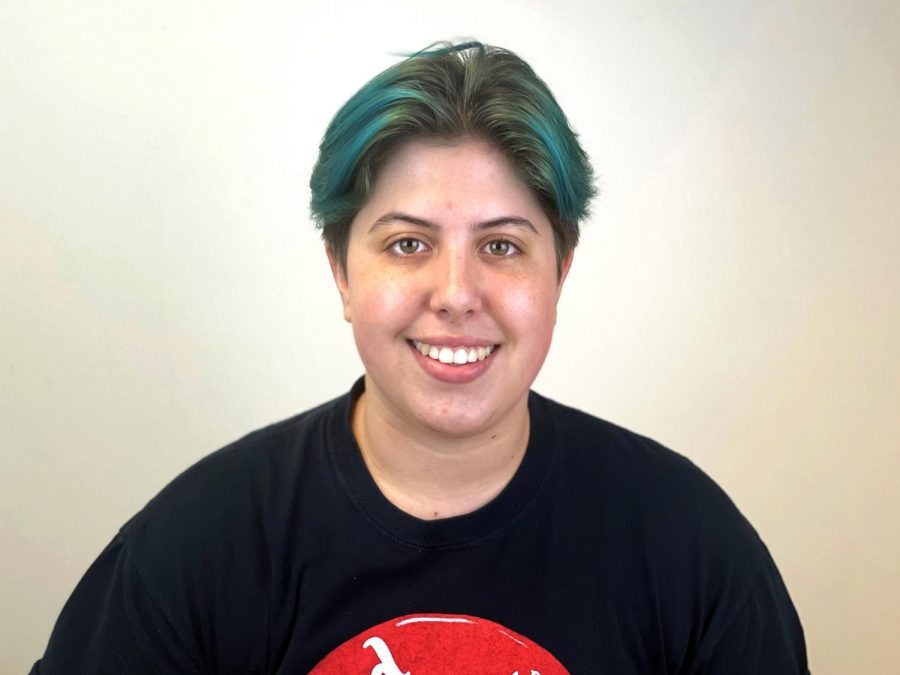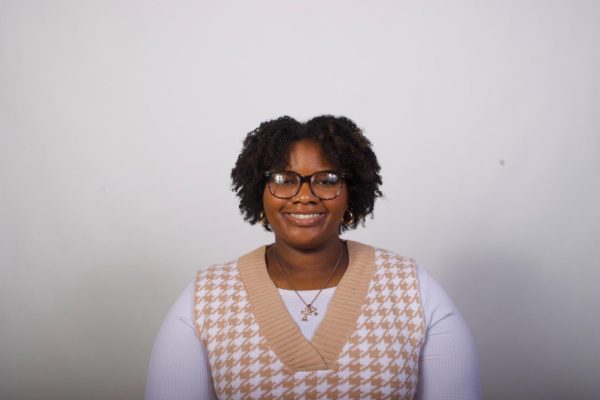COLUMN: Why people actually care about pronouns
November 2, 2021
As transgender people have come into the forefront of political activism and debate, much of the narrative about who we are and what we want has been told by people with little real knowledge on the topic.
When trans people say we’re looking for rights or progress, we’re typically referring to macro-level changes in laws or society; these things take time, activism and legal processes.
As a college student, there’s little I can contribute to that conversation, because anything I could say has been said better by someone else. Instead, I’d like to focus on something we talk about on the interpersonal level: pronouns and misgendering.
Cisgender people – people who are not trans, who identify with their birth sex – usually don’t think much about how they would feel if they were called the wrong pronouns.
Some, who dress more androgynously or are gender nonconforming in appearance, have experienced the strange feeling of being misidentified.
Most transgender people have experienced this throughout their lives; often from people who simply didn’t know the correct pronouns to use.
As a trans person with many trans friends, I can confidently say that those mistakes have never been something we’re offended by or have a huge problem with.
What we get upset over is when people who do know our gender identities and what pronouns to use still use the wrong ones, intentionally and/or repeatedly.
If you make a mistake, you typically try to fix that mistake. If you keep making the mistake after being corrected multiple times, this shows a lack of effort and care.
If you intentionally call someone “she” when you know his pronouns are “he/him,” “he” or “she” when you know their pronouns are “they/them,” or “he” when you know she goes by “she/her,” that’s called transphobia.
We don’t get upset by this because we’re snowflakes, crybabies, or drama queens.
We get upset because when we tell you our identities and pronouns, we’re telling you not only who we really are, but about something that you can guarantee has had a huge effect on our lives due to the current societal view of transgender identities.
If you use the wrong pronouns for us, it tells us that you don’t see us as our true selves.
It’s more than just being rude to us- and to be clear, using words for someone when you know it upsets them is pretty rude.
Beyond that, intentional misgendering is like looking at a trans person and saying, “I understand that you’ve gone through a lot to learn this about yourself, and you’ll continue to go through a lot as you transition, but I disagree with who you are as a person and I’m making my feelings your problem.”
At this point, I don’t care if you “agree” with transgender identities or not. You have Google as a free resource to educate yourself on the topic.
Regardless of your beliefs, if you’re misgendering people in your daily life, you’re ruining relationships with your political beliefs.
Luke Taylor is a junior journalism major. He can be reached at 581-2812 or [email protected].

















































